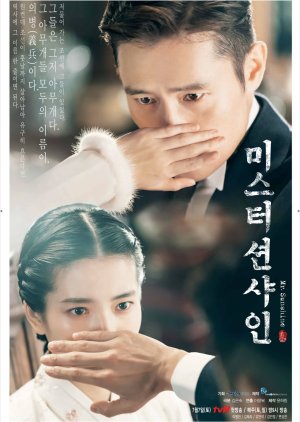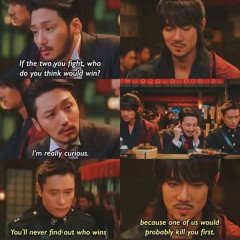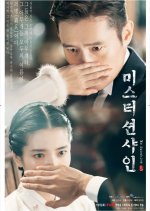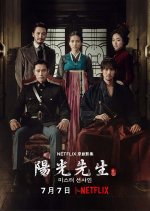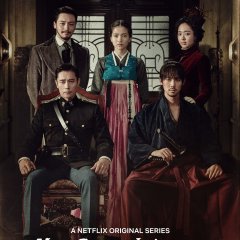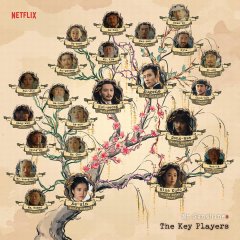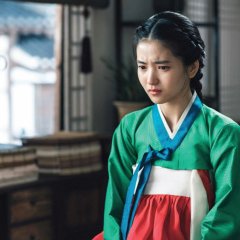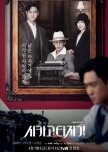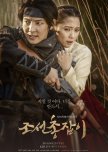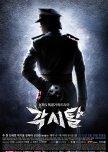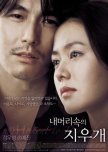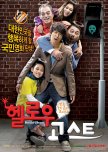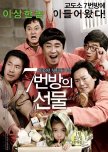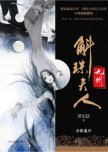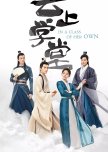 "I kept getting rejected from auditions": "Queen of Tears" Lee Joo Bin Talks About Her Past Struggle
"I kept getting rejected from auditions": "Queen of Tears" Lee Joo Bin Talks About Her Past Struggle Mr. Sunshine centers on a young boy born into a house servant's family who travels to the United States during the 1871 Shinmiyangyo (U.S. expedition to Korea). He returns to his homeland later as a U.S. marine officer. He meets and falls in love with an aristocrat’s daughter. At the same time, he discovers a plot by foreign forces to colonize Korea. Edit Translation
- English
- 한국어
- 中文(简体)
- 中文(台灣)
- Native Title: 미스터 션샤인
- Also Known As: Miseuteo Shunshain , Mister Sunshine
- Screenwriter: Kim Eun Sook
- Director: Lee Eung Bok, Jang Young Woo
- Genres: Military, Historical, Romance, Melodrama
Where to Watch Mr. Sunshine
Subscription (sub)
Cast & Credits
- Lee Byung Hun Main Role
- Kim Tae Ri Main Role
- Yoo Yeon Seok Main Role
- Kim Min Jung Main Role
- Byun Yo Han Main Role
- Kim Gab SooHwang Eun SanSupport Role
Reviews
This review may contain spoilers
Beautiful but ultimately hollow symbolism
I have finished watching MR SUNSHINE, and there was so much that I loved about this prestige kdrama. The writing of the heroine was SO good in how it discussed and defied some of the worse kdrama-heroine tropes. There was amazingly trenchant and deeply nuanced social criticism, gorgeous cinematography, lots of fascinating history, the warmest and most positive depiction of Christianity I've ever seen in a kdrama, men who drink respect women juice, the beautiful and angsty Gu Dong-Mae, FABULOUS period clothing, and rivals in love learning to put aside their differences in favour of shooting imperialists.But the show has a major flaw - a flaw that was particularly interesting to me, because it's the precise sort of flaw that I would be most prone to. The screenwriter, who does such brilliant work in so many other ways, is clearly most fascinated by the themes and symbolism she keeps bubbling away in the story's subtext. The problem is that these themes and symbolism - which delightfully clever - are not actually supported by the storytelling, and particularly by the characterisation.
And it's a really fun, rich, resonant bit of symbolism: Ae-Sin is not just a character in the story, she's the living embodiment of Joseon Korea. She's beautiful, desirable, noble, privileged, gradually awakening to a life of hardship and struggle and resistance. Each of the three male leads in the story has a different complicated relationship with her. Eugene has run away from Korea, but returning as an adult cannot help falling in love with the land and the people in defiance of the nobility who mistreated him as a boy. Gu Dong-mae was horribly oppressed by his homeland but cannot help loving it anyway; the Korea which oppressed both men also saved their lives through small acts of kindness. And finally, Hee-Sung, Korea's richest son, is her approved betrothed, but past injustices committed by his family against the people Ae-Sin cares about stand between them. The three men fall in love, not with Ae-Sin, but with their homeland. They express their love for the woman by sacrificing themselves for the homeland; in dedicating themselves to her, they cannot help dedicating themselves to the fight for freedom.
This is why the story had to have a sad ending. None of these men can espouse the whole country; they can only die for her, while Ae-Sin - Korea itself - lives on, alone and victorious, even in exile.
This symbolism is itself delightfully rich, deftly painted, and rewarding to think back upon once you see it. There's only one problem: it doesn't. make. sense.
From the very start of the show, I felt a little impatient with the writing because the relationships between the heroine and her three suitors are so poorly developed. The feelings come out of nowhere. Take Gu Dong-Mae, for instance: he last met this woman when she saved his life as children. Now, it just takes a brush of her dress across his fingers to get him pining madly for her. Hee-Sung, after avoiding her for the best part of a decade, gets one glimpse of Ae-Sin at the washing-line and just like that conceives an undying passion for her. The central relationship, between Ae-Sin and Eugene, doesn't fare much better. The problem is that the story demands each of the male leads to sacrifice himself for Ae-Sin by the end of the show, and I simply couldn't understand why they should. They all have multiple other women pining for them, and Ae-Sin doesn't give two of them the slightest encouragement to hope. I wanted them so badly to find happiness with one of the other women, and they never did.
What MR SUNSHINE needed was not primarily rich and complex symbolism - it was believable characterisation and relationship development. As it was, the lack of substance to the relationships cheapened the grand historical tragedy which was being told. When at the climactic moment the last of the three leads sacrifices himself for the heroine, it felt cheesy and unintentionally funny, rather than tragic.
I loved so much about this story, but the heart of it never clicked for me, and it's a crying shame that with all that budget and talent, it wasn't better written. And that, for me, will be the central tragedy of MR SUNSHINE.
Was this review helpful to you?

The setting of the drama is what initially attracted me. At the turn of the century, it is an important time for Joseon, where their fate for the next few decades, even up to our day and age, would be determined during that time. One of the themes that were emphasized in this drama is the injustices some Koreans went through at the hands of their people, especially due to hierarchy. This resulted in many people with a grudge against their own country, especially against the nobles.
Another very strong point about this drama is the character development. Other than the Japanese antagonistic, and the depiction of some traitors, many of the characters were given layers and layers, that you can't help but feel for. Of course, it all bloomed thanks to the talented actors behind it. Starting with Kim Tae Ri playing the character with a mission Go Ae Shin. This character could've easily become overbearing (think Gaksital FL), yet here she remains constant. As the story goes on, you can't help but be driven by her plight. And that is what happened with all 4 other leads. Eugene Choi on the other hand is the character I connected with the most. The feeling of not belonging to neither country can be lonely. You see him struggle daily trying to understand where he stands. I admired how he never felt ashamed of his origin and felt for his pain and grudge against those who caused it. Then you see his grudge falter as he is met with people that kept challenging the preconceived notion of his birthplace. Lee Byung Hun really gave his all for this character, especially towards the end.
Watching Yoo Yeon Seok after seeing him in "Hospital playlist" it is difficult to accept that is the same person. Looks aside, his character is the most pitiful and toxic. He has no problem slicing anyone in half if they got on his wrong side, yet he won't hesitate to protect them if he sees anyone being unfairly treated. The most tragic character is Kudo Hina / Lee Yang Hwa played by Kim Min Jung. Having been sold off previously like some commodity really shaped her personality. She is all about being in control, however, the one thing she could never control is the action of her parents. This breaks her time and again throughout the drama. You can also sense the sadness in her eyes. Finally, Kim Hui Sung played by Byun Yo Han was the main reason for me for starting this drama. He was the actual sunshine here. His smile lightened my day, even when you could feel the heavy burden behind it.
Of course, what made this drama memorable is a large number of supporting characters. Gunner Jang was a character I followed and rooted throughout. This story was as much his story, as it was Go Ae Sin's story of a man who rejected the leaders of his country but chose its people. He was the forever rebellious Jang. Another character that stood out is the king. He was frustrating for most of the drama, but as the story went on, you realize how helpless he felt, and how carefully he chose his actions to protect his people. Being in his place is the most crumbling experience. There were many more, too many interesting characters.
The horror of colonialism is really well exposed here. The actions the Japanese did makes you wonder if it was possible to lose one's humanity to this point. Now, I do not know if what was portrayed was exaggerated. Some instances couldn've been, while others not. However, I do know the dangers of collective brainwash. When being constantly fed on how those "other" people are less than you, your brain accepts it and you become desensitized. Seeing what my beloved Japanese people did was really conflicting. But that is the truth of becoming a colonizer. Though they suffer a lot later due to losing the war, I think that was a blessing in disguise. It helped them reflect on what they have become and change. That opportunity was never offered to those that never lost a war.
Action scenes were great overall, but especially the sword fights with Gu Dong Mae. The scenery was beautiful, and some scenes were haunting. The train scene will probably go down as one of the most beautiful scenes in my memory.
While the drama had all those great things going for it, it still took me so long to finish. I lost my motivation to watch due to the lack of direction for the story to take. Each episode was between 75 - 80 minutes, with much of it had the characters walking around and eating dessert. The actual story starts at around episodes 19-20. Yes, it took THAT long for the story to take off. That is too much fat needed to shed. There is also the mix of history and myths that bothered me, and no reasoning given for actions that took so long to be taken. For example, the Mori character made no sense. They used it to turn the Japanese colonization of Korea to be some family centuries-old conspiracy when this had nothing to do with the truth, nor the overall story. Just added drama that didn't amount to anything. The portrayal of America is also in the same vein. On one hand, it's treated like this paradise, only to be brought down to reality by our Korea-American hero. One line said really stood out:
"America & Britain lent Japan a total of $410 million dollars, and 40% of it is being spent on the war. The two countries basically forced Japan into the war. Hence, America will never help Joseon. The Russo-Japanese war will result in a great deal of profit for America”
The music was overall negligible, but there was some sweet background that brought peace to the scenes.
It was overall a good drama to watch if it wasn't for the dragginess. I do recommend it to all.
Was this review helpful to you?

